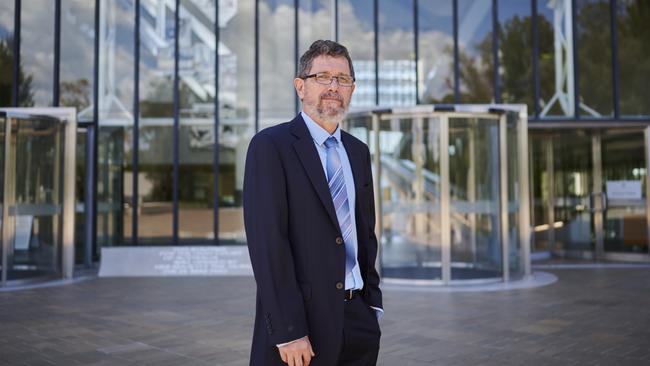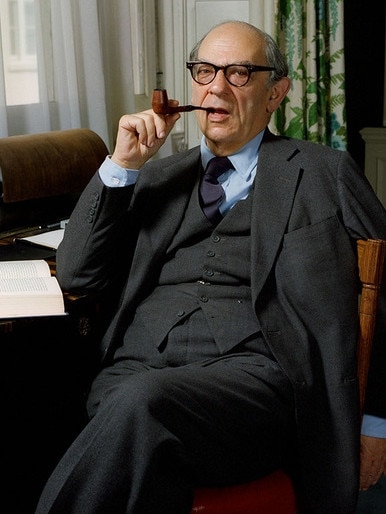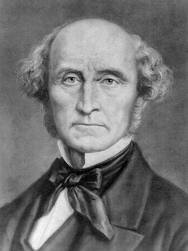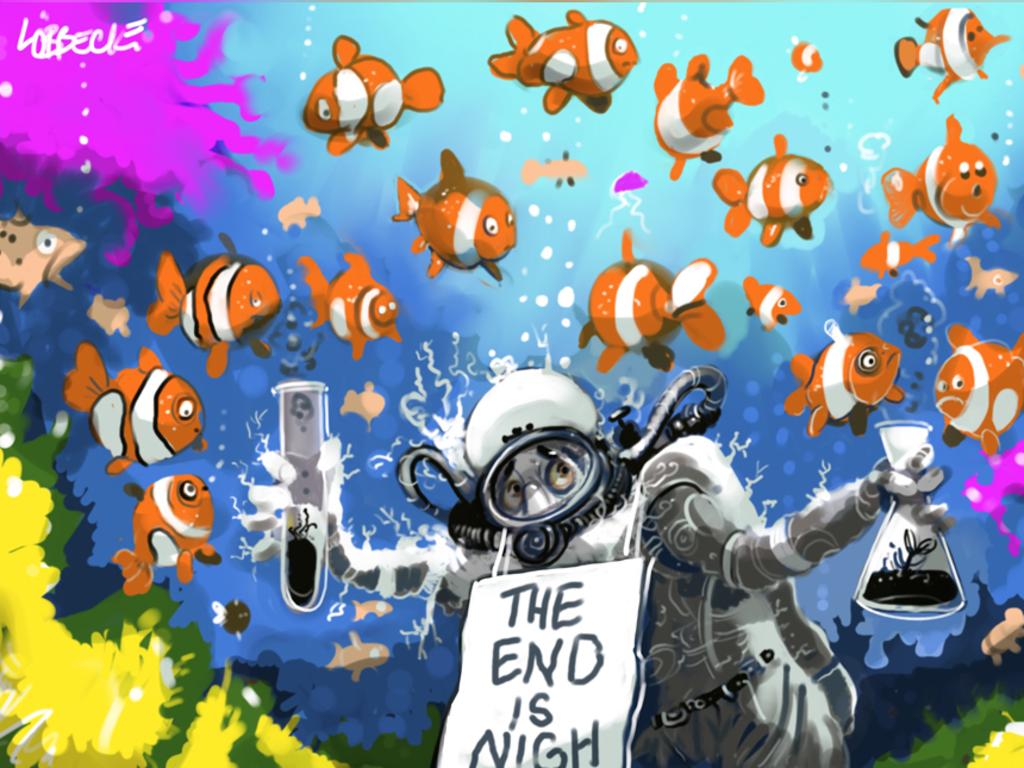Truth comes second to telling people how to think
Next week, the High Court has the opportunity to defend academic freedom in Australian universities. What it decides will be a marker for the state of our civilisation.

On Wednesday, the High Court has the opportunity to defend academic freedom in Australian universities, but to do so it must explicitly reject a lower-court ruling that this vital principle is more or less obsolete. What it decides will be a marker for the state of our civilisation.
On that day, the court will hear arguments in the dispute between James Cook University and Peter Ridd, the professor and marine geophysicist it sacked in 2018.
Ridd was dismissed after disagreeing with some of his colleagues regarding their claims about damage to the Great Barrier Reef allegedly caused by climate change and other factors such as farm run-off, including in a chapter contributed to the Institute of Public Affairs’ essay collection Climate Change: The Facts 2017.
Last year the Federal Court raised the stakes when, in upholding an appeal by JCU against an earlier decision, the majority judgment purported to dismiss the entire tradition of free inquiry on which the modern university is founded. As such, the case has become much more than a mere contractual dispute. It raises important questions about how the modern university understands its mission and, moreover, how our society understands the concept of knowledge itself.
Ridd’s contract guaranteed “intellectual freedom”, which explicitly included the right to “pursue critical and open inquiry” and to “participate in public debate … related to (his) fields of competence”. Ridd advocates for more debate and more rigour in the study of the reef. His concern is that failures in reef science have driven governments to excessively restrictive regulations, with harmful implications for the local agriculture and tourism industries. In narrow legal terms the question is whether Ridd’s dispute with his colleagues is covered by his right to intellectual freedom – expressly protected in the JCU enterprise bargaining agreement – or whether this right is overridden by JCU’s code of conduct, which, among other things, holds staff to a standard of collegiality.
The relationship of the code and the contractual freedom rests on how that freedom is construed – and it is here that two out of the three judges in the Federal Court made a radical, but easily overlooked, finding.
The majority judgment held that intellectual freedom should not be construed by reference to “historical concepts of and definitions of academic freedom”. They interpreted academic freedom as a term that includes both the intellectual freedom of academics and the prerogative of universities to independently set their own policies. The majority held that the meaning of the broader concept in universities today must be adapted to “contemporary circumstances which present a challenge to it, including the internet, social media, and trolling” and dismissed “JS Mill, John Locke, Isaiah Berlin and others who have written on the topic” as effectively outmoded.
In several different ways, this is a quite extraordinary proposition. As University of Melbourne law professor, and expert on the subject, Adrienne Stone recently observed in the Sydney Law Review, intellectual freedom and academic freedom are normally interpreted as equivalent.
Moreover, the kind of free inquiry these twin concepts pick out is bound up with the historic mission of the modern university. While academics in the Middle Ages were able to pursue various investigations, they were also subject to the religious character of the university. This changed in 1809 with Wilhelm von Humboldt’s foundation of the University of Berlin on the principle of improving society through the discovery of knowledge by free inquiry. Since then, the modern university has been committed to the idea that through experimentation and discussion we can learn about the world and ourselves, and this learning can be turned to the general advantage.
The Federal Court’s majority finding that the history and ideas that led up to and followed this event are irrelevant to the construction of intellectual freedom in a university contract suggests that perhaps the court and the universities now have some different mission in mind. This impression is strengthened on consideration of what the named philosophers wrote about education and free inquiry. Had they inquired further, the majority would have found some insights that are not only relevant to the business of universities even now but perhaps weightier than ever.
Locke, for example, argues that ideas are products of experiences – we can, with reflection, distinguish, combine and abstract from our sensations to develop an understanding of the world. There is a direct connection between our freedom to seek knowledge and our individual happiness, and, moreover, our sense of ourselves as individuals. When he turns his mind to education, Locke argues that children should be exposed to a wide variety of experiences, including physical exercise, travel and learning a trade. For the university-aged, Locke emphasises the recognition of the limits of our native reason and so “however proud you are of your own basic abilities (it is) useful … to talk and consult with others”. During the era of “deplatforming”, few pieces of advice could be more apposite.
Though his work differs significantly from Locke, John Stuart Mill, writing 1½ centuries later, amplifies the importance of free inquiry to the development and happiness of individuals. Mill, who was heavily influenced by Humboldt, is probably most famous for his defence of freedom of speech, which he considers inseparable from freedom of thought, and that can be summarised as the claim that even where we are certain we know the truth, we still benefit by hearing opposing views and testing our own positions.
Mill warns that without positive institutional support for dissenting views, the conjunction of democracy, scientific administration, universal education, “improvements in the media”, migration and commerce will produce “a general similarity among mankind” that ultimately will cause stagnation for individuals and society.
He also broadly anticipates arguments for collegiality, suggesting one use for freedom of speech is judging others and that in fact “It would be well … if this good office were much more freely rendered than the common notions of politeness at present permit”.
The lesson from Mill, then, is that just as the mission of the university is bound up with free inquiry, it is to the same extent bound up with positive support for debate and contention. The last of the three named philosophers, Berlin, is different again. While Locke and Mill tend to argue that careful study of the world eventually will yield a kind of scientific morality, Berlin rejects this. Nonetheless, he supports a wide-ranging notion of free inquiry.
Berlin writes that to believe in education, “It need be accepted only, firstly that the discovery of the truth is a great good in itself, and secondly that the only real remedy for the evil consequences, whether of ignorance or of knowledge, is more knowledge”. He argues for a kind of moderation against the progressive “engineering of human souls” and the prospect of an irrational backlash against modernity, and sees free inquiry as central to this purpose.
Despite deep substantive disagreement, the three agree that free inquiry and the discovery of knowledge are key to the flourishing of individuals and society.

This is not unusual. Thinkers as diverse as arch sceptic David Hume, scholar and theologian John Henry Newman and progressive legal theorist Ronald Dworkin all defend free inquiry and the duty of academics to seek out knowledge and communicate it clearly to others.
The majority would have us believe this entire line of argument has been superseded. Their grounds for this claim are not made entirely clear, but there is a clue in their reference to prominent philosopher of knowledge Jennifer Lackey. It is her short introduction to a collection of essays entitled Academic Freedom that the majority cites (out of context) for the claim that the internet has made obsolete the traditional notion of academic freedom.
Lackey is known for her work in social epistemology, a field that explores the connection between knowledge and collective action and considers questions such as how democratic bodies can be taken to represent the views of constituents, the terms on which a consensus can reasonably be accepted as the truth and how misinformation prevents the development of group knowledge.
The focus, then, is not so much on individual experimentation as on building consensus within institutions. This perspective fits with the majority’s conclusion that the code of conduct trumps the freedom guaranteed to Ridd by contract. In context, the suggestion seems to be that intellectual freedom can be restricted legitimately by JCU’s priority of consensus building.
The implication is that universities now have a strikingly different mission from that supposed by the tradition: no longer are they concerned with discovering and analysing objective data but, rather, with structuring inquiry towards establishing consensus. Truth comes second to telling people how to think.

This can be placed within the broader trend against free inquiry, seen in the rise of human resources bureaucracies, campaigns against dissenting views and legislation curtailing speech. All of which is in service of the same idea that consensus is more important than discovery. Indeed, on this view, consensus is the truth.
The shift in emphasis from discovery to consensus is often linked with the claim that basic, time-tested concepts of our society – such as academic freedom – can and should be revised in service of current institutional priorities. This reflects the ascendant notion that all our received ideas are suspicious because they are implicated in a history characterised by various forms of abuse, such as racism, sexism and colonialism. Consciousness of this sorry story is held to separate our present from our past, prompting the radical revision of our historical narrative, and all the institutions and concepts that are rooted in it.
The court’s ahistorical rendering of academic freedom therefore plays into doubts about the tools by which inquiry might even be made, namely, our established concepts. For centuries we have understood it is only by the use of concepts known already to track reality that we might advance our knowledge. But instead of seeking to grow our knowledge of the world, the universities and our other elite institutions – including, apparently, the Federal Court – have deemed the past a failure and become preoccupied with starting all over again. That it is dangerous for society to be destabilised in this way requires little more than pointing to the material ruin, spiritual resignation and political instability that have become the hallmarks of the Western world.
The Ridd case, then, is no ordinary contractual dispute because the terms of the contract that are in dispute are connected with some of our society’s most deeply held convictions: that reason enables the discovery of objective truth, that in this task reason is enabled by free inquiry and free speech, that this task is entrusted to the university, and that the university’s trusteeship is part of the broader civilisational mission of passing on the best of our inheritance to our children and grandchildren.
Andrew Bushnell is an adjunct fellow at the Institute of Public Affairs. This is an edited extract of an essay published in The IPA Review.







To join the conversation, please log in. Don't have an account? Register
Join the conversation, you are commenting as Logout